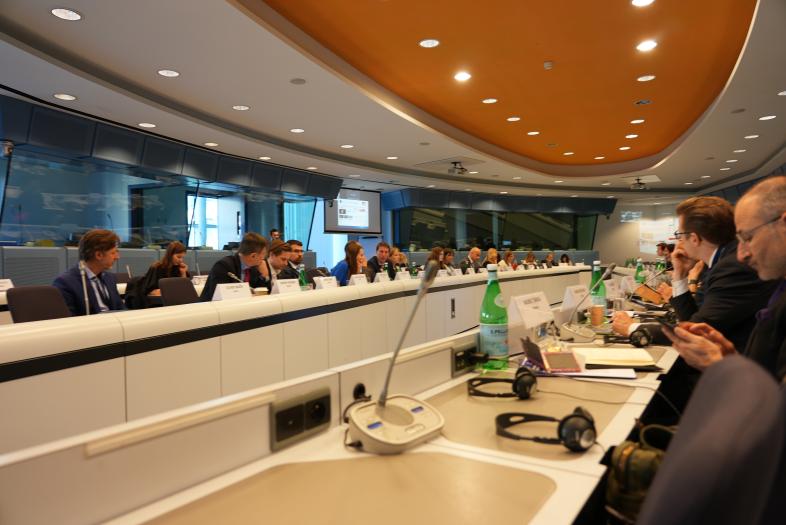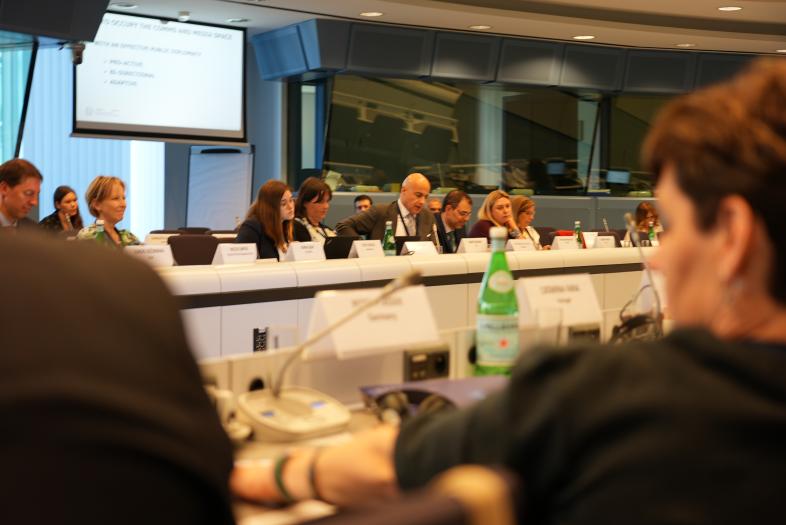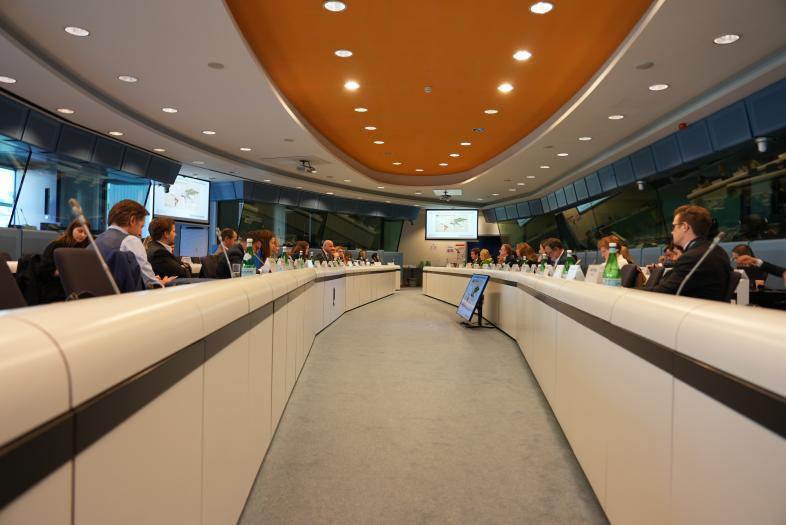Speaking with one voice: Overcoming the Battle of Narratives

Directors of communication departments of EU institutions and Ministries of Foreign Affairs of EU Member States gathered for a full day to discuss challenges and opportunities for the EU’s communication. This regular meeting had been on hold due to the global pandemic, and the initiative of restarting it was highly welcomed by all participants.
“More than ever, united efforts are needed. We need to work as Team Europe”
Aude Maio-Coliche,
EEAS Director of Strategic Communication (StratCom)
“Communication has become weaponised”, said Aude Maio-Coliche. By recognising communication challenges, the StratCom Director also called out for “united efforts” and for the application of “effective strategy and action: not only to counter FIMI, but by being pro-active and getting EU message across”.
“Internal and external communications need to work hand-in-hand and be coherent.”
Pia Hansen
Director-General of Communications at European Commission
Perception of EU citizens is fundamental for the design of EU’s strategy abroad. Pia Hansen, Director-General of Communications at European Commission, highlighted the positive EU public opinion as an opportunity towards a common foreign policy: “What is interesting is that Russian war of aggression hasn’t diminished that support, but strengthened it”.
The Director-General called for a step-up of joint efforts to communicate about the consequences of the Russian war of aggression, which includes better communication about what the EU is doing to alleviate its impact, meaning of sanctions and the importance of a rules-based order.
“If you want to own your story, you need to be the one telling it.”
Mikko Koivumaa,
MFA Finland Director General of Communications
Starting from a general agreement on the benefits of a joint approach in working together and collaborating on campaigns, with journalists and in social media, communication directors from Member States highlighted three main messages.
- Foreign Information Manipulation and Interference (FIMI) shouldn’t frame the EU’s communication actions, we should tell our own story;
- There is a need for a better understanding of local realities and adaptation of communication actions accordingly
- Positive messages should the focus of the EU’s communication abroad.
“When we speak from Brussels, the world listens.”
Peter Stano
Lead Spokesperson for Foreign Affairs and Security Policy
From Brussels, the Spokesperson Service is well aware of the so-called ‘battle of narratives’, as they address journalists from all parts of the world on a daily basis. The lead spokesperson for Foreign and Security Policy, Peter Stano, highlighted the advantages of having a cohesive approach to global topics and how statements coming from Brussels have a global projection.
Combating Foreign Information Manipulation and Interference (FIMI)
The FIMI toolbox developed by the EEAS has been praised a success story. Its capacity has opened the way to further collaboration, including with international partners. The collaboration with the network of Information Sharing and Analysis Centers (ISACs) is a good example.
Besides having a reactive approach, it is needed to support local hubs and networks to become more resilient. Pre-bunking, as a pre-emptive technique, should be further explored.
Understanding the context, acting and communicating
Several best practices were presented to illustrate communication opportunities to project the role of the EU and its Member States in the world.
A good example came from Italian Ministry of Foreign Affairs. By understanding the deep interest of nations in the Mediterranean and Middle East to rediscover their cultural roots, the Ministry supports archaeological missions to provide more explanations about the past and connections amongst different peoples.
These missions have been widely communicated to further show how the role of the EU is associated to the preservation of culture, combating the presence of radical groups that in practice aim to destroy it.
Upcoming European Elections
In June 2024, EU citizens will be invited to vote for the constitution of a new European Parliament. Communication efforts about the European elections can’t be limited to the EU, as the diaspora needs to be informed about their rights to access information and vote.
Building upon previous successful campaigns, the European Parliament is counting not only on the role of civil society, but on the strength of the Team Europe approach by working together with Member States, in order to create a multiplying effect at the national level.








